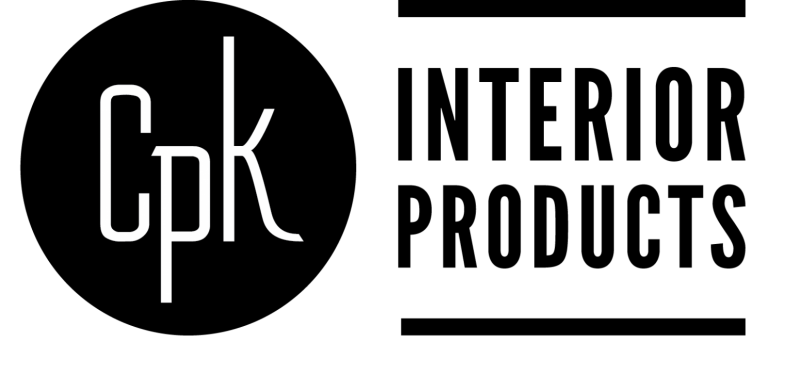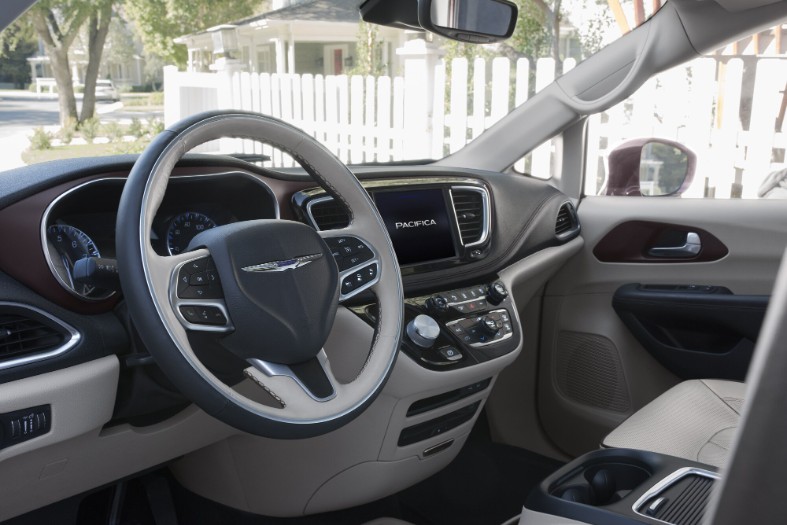Ontario-based CpK Interior Products Invents ‘Anti-Viral Plastic' That Kills 99.9% of COVID-19 on Vehicle Interior Surfaces
【Summary】Ontario-based company CpK Product Interiors Inc., a Tier 1 supplier of automotive interior components, announced it developed a line of “anti-viral” material formulations for hard and soft plastics, such as those used in vehicle interiors. The company claims that its formulation kills 99.9% of SARS-CoV-2, the virus responsible for Covid-19, on material surfaces in less than 60 minutes. Founded in 2010, CpK is a subsidiary of automaker Fiat Chrysler Automobiles.

The global Covid-19 pandemic has resulted in over a million deaths and caused an economic downturn that threatens to cause the worst recession since the Second World War. It has also decimated the ride-sharing business around the world over concern of exposure to the virus from the enclosed space of a vehicle's interior.
San Francisco based Uber Technologies Inc. for example, reported its core ride-hailing business declined by more than 50% in 2020 due to Covid-19 fears, as customers are reluctant to ride in shared vehicles.
Although Uber and its main rival Lyft Inc. have implemented new Covid-19 protocols, such as supplying clear plastic barriers to separate the driver from the back seat occupants, the required use of face masks by both driver and passengers, and wiping down a vehicle interior surfaces with sanitizer after each ride, these steps may not be enough to ease customer concerns or completely prevent exposure. But one supplier to the auto industry may have a solution.
Ontario-based CpK Product Interiors Inc., a Tier 1 supplier of automotive interior components, said it developed a line of "anti-viral" material formulations for hard and soft plastics, such as those used in vehicle interiors. The company claims that its formulation kills 99.9999% of SARS-CoV-2, which is the virus responsible for Covid-19, on material surfaces in less than 60 minutes.
"The new material and applications are patent pending," said Dr. Farrar Head of Research & Development at CpK and one of the lead inventors of the technology.
CpK Product Interiors was founded in 2010 and is a subsidiary of Fiat Chrysler Automobiles (FCA). The company supplies vehicle interior components to the automaker, including for the popular Chrysler Pacifica minivan that's being tested by Waymo for use in a commercial robotaxi service.
The company also has an engineering center in Troy, Michigan.
CpK's product line also includes the instrument panels, door panels, and console assemblies for the Chrysler 300, Dodge Charger & Challenger, as well as consoles for Pacifica minivan.
The company's latest breakthrough was spearheaded by a call-to-action from FCA to address concerns over exposure to Covid-19 from a vehicle's interior surfaces. These concerns have spread beyond the auto industry to public buses, trains and aircraft as people postpone air travel and refrain from using public mass transit services.
Knowing that customers would be more concerned about the interior safety of its vehicles, FCA created the "Healthy Cabin Initiative," challenging its suppliers to find ways to reduce the risk of coming into contact with the COVID-19 virus in automobile cabins.
"Plastics can be found in many high touch areas, even outside automotive applications. Therefore it's important to design them for tackling microbes like SARS-CoV-2 , this helps in bringing normalcy in many areas," said Dr.Murali Reddy, one of the lead researchers at CpK working on the project.
The team at CpK was tasked to create material for vehicle interiors that showed "antiviral activity." The project was led by CpK's head of R&D Dr. Gregory Farrar.
The company said it was successful in inventing new cast skin vehicle interior materials for both the Dodge Challenger and Dodge Charger that displayed antiviral properties. CpK said its was able to successfully invent, test, and apply for a patent within 90 days of the project kickoff.
"This was no simple task, but our team had experience inventing novel materials in the past," Dr. Farrar said. "Not only did CpK have to discover which materials could actively attack the DNA of coronavirus, we also had to navigate the stringent and timely quality and testing requirements for new automotive interior materials."

CpK makes interior components for the Chrysler Pacifica minivan.
One of the other challenges the team faced was the anti-viral testing phase of the project. CpK said that most Canadian labs don't have the infrastructure to safely handle Level-3 viral pathogens such as SARS-CoV-2, which is the virus that causes Covid-19 infection.
Order to assist FCA in its initiative, CpK contracted the ImPaKT Facility at Western University's Schulich School of Medicine & Dentistry in London, Ontario to collaborate and conduct testing.
The ImPaKT Facility was designed to foster collaboration and partnership to combat pathogens. The facility's goal is to enhance research and development to improve our understanding of infectious disease pathogenesis, interventions, diagnosis, and treatments.
The ImPaKT facility features barrier-enclosed imaging scanners and instrumentation, which will allow researchers to develop tools and methods to better understand the progression of infectious diseases like Covid-19 and effectively identify antimicrobial agents to eliminate it.
Before the global pandemic, much of the engineering research conducted by CpK was finding ways to make vehicle interiors more durable, with new materials such as graphene, that better stands up to extreme hot and cold temperatures, which often results in interior panels developing cracks. The company was able to use its prior experience to speed up the development of antiviral materials.
"A single test such as UV resistance and heat aging can typically take up to 21 days to complete, but we were able to have prototype parts sent to FCA within a month of kicking off the project," Farrar said.
As a Tier 1 supplier of automotive interiors, CpK says it's uniquely positioned to meet FCA's challenge to combat Covid-19. The company has the resources to develop, test, and manufacture raw materials for injection molding and foam-in place instrument panels, doors, and consoles and ship the finished products to the automotive customer. The foam-in-place process perfected by Cpk is typically used to create vehicle instrument panels and other soft touch and padded interior surfaces.
"Because the entire supply chain from raw material to finished product is all under the same CpK umbrella, we are able to invent, test, and prototype new material with speed and agility," said Ted Castle, Managing Director of CpK. "This ability played a key role in the success of the anti-viral project."
Dr. Farrar said the next phase of the project will be doing further validation of its performance, which includes installing it in vehicle interiors.
As future products become available, CpK said the new line will be branded "FORTI-VI" and will be intended for high touch surface applications.
-


Ford is Testing a New Robotic Charging Station to Assist Drivers of EVs With Disabilities
-


Ford Raises the Prices of the F-150 Lightning Electric Pickup Due to Rising Raw Material Costs
-


The BMW 7-Series to Feature HD Live Maps From HERE Technologies for Hands-Free Highway Driving in North America at Speeds up to 80 MPH
-


AutoX to Use the 'Eyeonic Vision Sensor' from California-based SiLC Technologies for its Robotaxi Fleet in China
-


LG Develops ‘Invisible’ Speaker Sound Technology That Could Revolutionize In-Vehicle Audio
-


Researchers at South Korea’s Chung-Ang University Develop a ‘Meta-Reinforcement’ Machine Learning Algorithm for Traffic Lights to Improve Vehicle Throughput
-


Zeekr’s New 009 Electric Passenger Van is the World’s First EV to Feature CATL’s Advanced ‘Qilin’ Battery With a Range of 510 Miles
-


Redwood Materials is Building an Electric Vehicle Battery Recycling Facility in South Carolina
- Faraday Future Delays Launch of FF91 Electric SUV Again
- Volvo’s Electric Vehicle Brand Polestar Reports $1 Billion in Revenue in the First Half of 2022, Adds 6 New Global Markets
- Report Claims Nissan Leaf Will Be Discontinued by 2025
- General Motors Announces Two Major Long-Term Supply Agreements for Enough Lithium and Cathode Material to Build 5 Million EVs
- Tesla Rival NIO Plans to Produce its Own EV Battery Packs to Improve Profitability
- California Startup Orbis Brakes Debuts its Revolutionary 'Periodic Wave' Brake Line Developed in Collaboration with NASA
- NHTSA Opens Investigations Into Two New Fatal Tesla Accidents
- Honda and LG Energy Solutions to Build a $4.4 Billion Joint Venture EV Battery Plant in the U.S.
- General Motors Announces a Key North American Nickel Supply Deal for Electric Vehicle Batteries
- AI-Powered Computer Vision Perception Developer StradVision Closes on $88 Million Series C Funding Round











 About Us
About Us Contact Us
Contact Us Careers
Careers